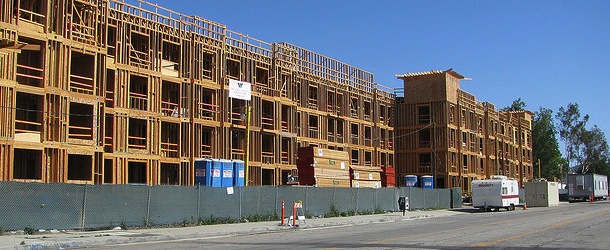Looking to buy a condo but need an FHA loan to get the job done? In the past this may have presented some challenges, but today it just got a bit easier.
Nowadays, the FHA requires an entire building to be FHA-approved, not just single units (no spot approvals anymore). It’s an all or nothing approach to ensure FHA loans only finance units in quality projects, thereby avoiding unnecessary risk for the agency.
But many prospective homeowners can only get approved for FHA loans because conventional financing is often out of reach for one reason or another. Additionally, many of these folks can only afford condos because homes are too expensive.
This also presents challenges to condo sellers who are limited to unloading their properties to those able to obtain a conventional loan. Obviously this can reduce demand and force the seller to take a lower price for their condo.
Apparently the Department of Housing and Urban Development (HUD) understood this was a problem and subsequently released temporary guidelines today aimed at easing condominium requirements so more borrowers can get FHA loans on such dwellings.
They’ve basically made three changes, effective immediately, which they believe will increase affordable housing options for both first-time home buyers and those with low- to moderate-income.
Streamlined Condo Recertification
- If a condo is already FHA-approved
- Recertification will be streamlined
- Assuming there haven’t been any substantive changes since prior approval
- Making it less of a burden to keep a building in the FHA’s good graces
First, they’re making it easier to recertify a condominium project that is already FHA-approved.
Existing guidelines require condos to get recertified after two years to ensure the project is still in compliance with FHA eligibility rules.
And the process needs to start six months before expiration, so it’s a constant bureaucratic nightmare.
It used to involve a lot of paperwork, including annual budgets, balance sheets, income and expense statements, occupancy review, and so on.
Going forward, the FHA will only require applicants to submit documents if there are “any substantive changes since the project’s prior approval.”
I’m not exactly sure what that means, but HUD refers to it as a streamlined process, so it should be easier for projects to maintain their eligibility.
Lots of building used to be FHA approved – hopefully now they’ll maintain that approval.
Eased Occupancy Requirements
- The FHA requires 50% of units in a building to be owner-occupied
- They have since lowered this requirement to 35% if some conditions are met
- They’re also expanding the definition of owner-occupied
- To include vacation homes (secondary properties)
Additionally, the FHA will also be modifying its calculation of owner-occupancy concentration, which should boost the number of units available for FHA financing.
At least 50% (half) of the units in a condominium project must be owner-occupied in order for borrowers to obtain FHA financing.
The FHA will now consider a condominium owner-occupied provided they are not:
• Tenant occupied;
• Vacant and listed for rent;
• Vacant and listed for sale; or
• Under contract to a purchaser who does not intend to occupy the unit as a primary or secondary residence
So it looks like condos that are secondary residences (not vacation homes) will count toward owner occupancy. HUD refers to a secondary residence as a dwelling the owner occupies in addition to their principal residence, but for less than the majority of the calendar year.
Ideally, this will make the 50% concentration rule easier to meet and boost the number of projects available for FHA financing.
This has since been lowered to 35% if certain conditions are met, making it that much easier to finance a condo with an FHA loan.
Lastly, HUD will now accept an expanded array of master policy insurance coverage options for the entire project.
HOAs are required to maintain coverage in an amount equal to 100% of the current replacement cost of the building.
Now they’ll be able to utilize insurance that consists of pooled policies for affiliated projects, state-run plans, or coinsurance obligations.
Per NAR, less than 20% of condominium complexes nationwide have FHA approval, and condos are 27% less expensive than single-family homes.
The Realtors’ group had been pushing for changes at the FHA for a while now, and all that advocating looks to have worked.
Still, a lot of condos aren’t approved for FHA financing and probably won’t be even with these changes, so it’s best to ensure you can get approved for all types of mortgages when it comes time to buy a condo.
Read more: Are mortgage rates higher on condos?

